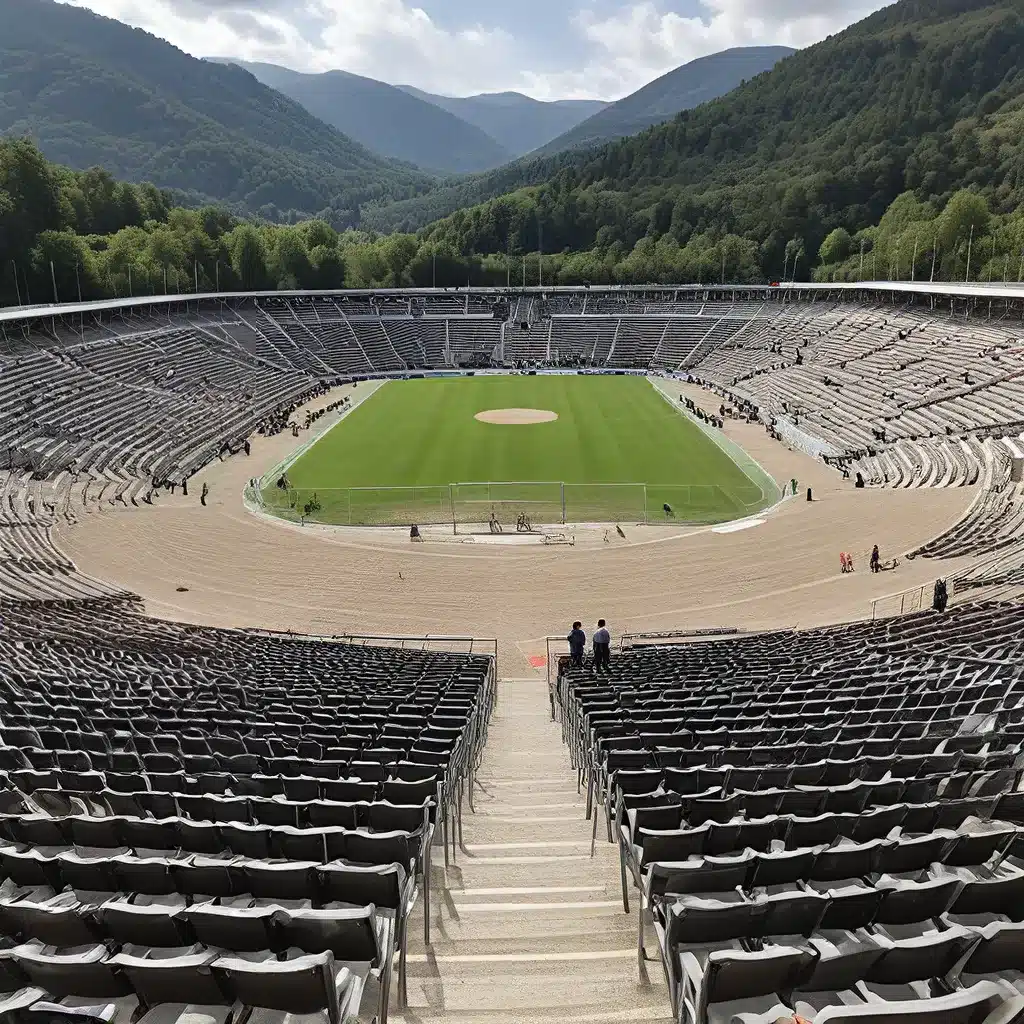
The Birthplace of Canoe Slalom Excellence
Nestled at the foot of the magnificent Pyrenees Mountains, the city of Pau in southwestern France has long been a hub for outdoor enthusiasts and sports enthusiasts alike. At the heart of this vibrant community lies the Pau-Pyrénées Whitewater Stadium, a world-renowned facility that has played a pivotal role in the development of canoe slalom, one of the most thrilling and demanding disciplines in the sport of canoeing.
The stadium’s origins can be traced back to the early 2000s, when the city of Pau recognized the growing popularity of canoe slalom and the need for a dedicated training facility. In 2008, the Pau-Pyrénées Whitewater Stadium was officially opened, becoming the crown jewel of the region’s outdoor recreation infrastructure. Designed to meet the exacting standards of international competition, the stadium quickly established itself as a premier destination for canoe slalom athletes and enthusiasts from around the world.
One of the stadium’s most renowned features is its natural setting, nestled in the foothills of the Pyrenees. The Gave de Pau River, which flows through the heart of the stadium, provides the perfect combination of challenging whitewater and scenic beauty, creating an unforgettable experience for both competitors and spectators. The backdrop of the majestic Pyrenees, with their snow-capped peaks and lush, verdant slopes, adds an extra layer of grandeur to the proceedings, making the Pau-Pyrénées Whitewater Stadium a truly unique and awe-inspiring venue.
A Legacy of Canoe Slalom Excellence
The Pau-Pyrénées Whitewater Stadium has played a pivotal role in the development of French canoe slalom, serving as the training ground for some of the sport’s greatest athletes. One such athlete is Tony Estanguet, a three-time Olympic champion in the men’s C1 event, who hails from the nearby town of Orthez. Estanguet, who has gone on to become the President of the Paris 2024 Olympic Games, has deep roots in the Pau-Pyrénées Whitewater Stadium, having trained and competed on its challenging waters throughout his illustrious career.
The stadium’s importance to the French canoe slalom community extends beyond just elite athletes. It has also played a significant role in the development of the sport at the grassroots level, hosting numerous regional and national competitions that have inspired generations of young paddlers to take up the sport. The stadium’s proximity to the Pyrenees and the abundance of natural waterways in the region have contributed to a rich tradition of outdoor recreation and a deep appreciation for the sport of canoe slalom among the local population.
Hosting Major International Events
The Pau-Pyrénées Whitewater Stadium’s reputation as a world-class facility has led to it playing host to numerous international canoe slalom competitions over the years. In 2017, the stadium welcomed the ICF Canoe Slalom World Championships, a prestigious event that showcased the sport’s top athletes and attracted thousands of spectators from around the globe. The stadium has also hosted numerous ICF Canoe Slalom World Cups, further cementing its status as a premier destination for the sport.
Beyond its role as a competitive venue, the Pau-Pyrénées Whitewater Stadium has also played a significant part in the promotion of the sport of canoe slalom on the international stage. The stadium was selected as a key location on the Paris 2024 Olympic Torch Relay route, with the flame passing through the facility on its journey to the French capital. This recognition not only celebrates the stadium’s history and importance but also serves as a powerful symbol of the sport’s enduring popularity and the region’s commitment to fostering athletic excellence.
A Unique Visitor Experience
For those seeking to explore the Pau-Pyrénées Whitewater Stadium and immerse themselves in the world of canoe slalom, the facility offers a range of visitor experiences that cater to a diverse audience. Whether you’re a seasoned paddler looking to test your skills on the challenging rapids or a curious spectator eager to witness the thrilling action, the stadium has something to offer.
One of the most popular attractions is the guided tour, which allows visitors to gain a behind-the-scenes look at the facility and learn about its history, design, and the intricacies of the sport of canoe slalom. For those who want to get hands-on, the stadium offers a range of instructional programs and workshops, where visitors can try their hand at canoeing under the guidance of experienced coaches. And for those who prefer to simply soak in the atmosphere, the stadium’s well-appointed spectator areas provide an unparalleled view of the action, with the stunning Pyrenees as a breathtaking backdrop.
Embracing the Future
As the Pau-Pyrénées Whitewater Stadium looks towards the future, it remains committed to its role as a center of excellence for canoe slalom and a beacon for outdoor enthusiasts from around the world. The stadium’s selection as a key location on the Paris 2024 Olympic Torch Relay route is a testament to its enduring significance and the region’s continued investment in the sport. As the countdown to the 2024 Olympics continues, the Pau-Pyrénées Whitewater Stadium is poised to play a vital role in the celebration and promotion of the world’s greatest sporting event.
For those seeking to immerse themselves in the unique and captivating world of canoe slalom, the Pau-Pyrénées Whitewater Stadium is a must-visit destination. With its stunning natural setting, rich history, and dedication to athletic excellence, this remarkable facility offers an experience that is truly unparalleled. Whether you’re a seasoned paddler or a curious spectator, the Pau-Pyrénées Whitewater Stadium is sure to leave a lasting impression and inspire a deeper appreciation for the sport of canoe slalom.

